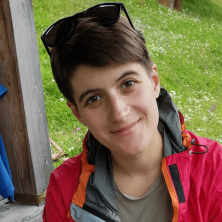From May through June 2020, the analytical platform VoxUkraine and the Center of Journalism of the Kyiv School of Economics were teaching employees of the Accounting Chamber, the Ministry of Finance, the Ministry of Economic Development, State Customs Service and State Fiscal Service to cooperate with the media. Based on the results of 15 hours of lectures and trainings, experienced editors Lyudmyla Smolyar and Otar Dovzhenko have prepared a series of practical materials for anyone who wants to establish a warm relationship with journalists.
Journalists are interested in civil servants, as characters of materials, experts and sources of information. It has already been mentioned in the “How to effectively cooperate with media“ article that journalists are not enemies, so communication with them should not be seen as a duel or a “who wins” competition. The job of journalists is to ask questions. In order not to harm yourself and your organization by answering these questions, you should learn more about the principles and professional standards that guide journalists when interviewing.
An interview is a conversation a journalist has with a character on behalf of and in the interest of the audience. When formulating questions and logically outlining the conversation, a journalist takes into account how aware the audience is, what they (and not the author himself) are primarily interested in, what things can be difficult for them. Sometimes a journalist has to ask “stupid” questions or ask the interviewee to explain things that he himself should understand.
The interview may have variable looks in the publication. Question-answer is just one of the text formats based on the conversation. It is typical for the post-Soviet press and is almost never used in the European press: there a question-answer is not a format, but a method to gather information. So when you are interviewed, remember that there are different ways to shape a printed conversation: for example, as a monologue on your behalf without questions from a journalist, as a narration of your words with or without quotes.
Journalists do not have to publish everything you said during the interview. They can shorten your words, if they do not relate to the main topic of conversation (and such a topic always exists, there is no interview about everything in the world) or if what is said is repeated several times during the conversation. When shortened, of course, the meaning of your words should not be distorted. If you are sure that you did not say what was written in the interview, or said something completely different, demand correction or clarification.
Journalists can swap around parts of the interview in the publication. They know better how to build a text in order to interest the reader of their media: where to start and what to finish with. If changing the sequence of your words did not distort their meaning, accept it: the text is created by the author, not the character.
The media edits direct speech — what you say will not be quoted verbatim. During editing, the order of words changes, repetitions and parenthetical words disappear, mistakes and bad formulations are corrected. If you believe that these changes have distorted the meaning of what has been said, demand correction or clarification. But you should not insist on what you said to be reproduced literally, on principle.
Not every long conversation is an interview. Journalists can communicate with you for a long time and ask a lot of questions in order to understand the topic, and to use only a few quotes in the material. This is a common practice, you should not be offended by this. Journalists should warn about this in advance, but sometimes they do not do it, they forget that it’s not obvious. Quality media journalists talk to many people to gather material for publication, especially on complex and multifaceted topics. Journalists call such large materials a feature. When arranging a conversation, ask what the format of the material will be and how the journalist will weave your words into the text.
Do not ask journalists to send interview questions before the conversation. Professional media people don’t do that, they are not interested in you muttering prepared and memorized phrases during the conversation. On the other hand, journalists want meaningful conversations and understand that they are often impossible without preparation. Therefore, you can ask to outline the topics of the future conversation, rather than specific questions. If you don’t like the topics or you are incompetent in them, refuse the interview. If you can, advise a more appropriate character in your place.
If you know the topic of the conversation in advance, get prepared. Think about what you will say and how to communicate your words in more understandable way to a reader, who may not understand anything in your field, through examples, comparisons, analogies, simple and clear words. Imagine a person reading your interview, asking “so what?” from time to time. You need to make sure he/she finds the answer, that is, to explain how your story relates to their life.
Do not get personal in a conversation with a journalist. You should not also answer a question with a question (unless you really do not understand what you are being asked about and want to clarify something). This is a technique that an intelligent audience identifies as a sign of political demagoguery. Experienced journalists answer to such: “It is me who is asking questions here”, and do not allow themselves to be involved in a non-constructive dispute.
Radio or television interviews require even more careful preparations, especially when it comes to live broadcasting. Live on the radio is essentially similar to newscast, but it lasts longer: the host talks on some relevant topic and attaches experts to the story. If you are invited to talk in live, expect 5-10 minutes conversation (the radio news show lasts three minutes and there may be no quotes at all, or a few 10-20 seconds each, such a specific nature of this format). Live is a chance for a speaker to be remembered by both a listener and journalists, if he/she is talking in a clear and competent manner. After the broadcasts, journalists discuss speakers and share their impressions of whether it makes sense to invite them again.
Before giving a TV interview, you should watch previous issues of the same program. This way you will see in what style the hosts do the talk and you will know what to expect from them. You will find out for how long you will be talking: there is a big difference, it’s about 10 minutes or an hour. It also matters if there is anyone in the studio besides you and the host, and in what role. And if so, will you have the opportunity to ask each other questions or just to have a word. If there are other guests, it affects both the dynamics of the conversation and the amount of time allowed to each of the guests.
If you want to get on the radio or TV show, contact the guest editor, not the editor-in-chief of the media. It is the guest editors who are responsible for guest suggestions for live broadcasts. Journalists go to them to find out which speakers are competent in what areas. There are few guest editors in Ukraine, they know each other and actively exchange information, including contacts of speakers and impressions about them.
Journalists are reluctant to give the text of the interview for approval. Although sometimes they have to do it, because by the law a respondent is a co-author of the interview and without his consent the conversation cannot be published. As a rule, the characters “edit” the text in a worse way and in a way that is unacceptable for journalists: they replace clear formulations with “more reasonable” or “official” ones, add what they did not say in the conversation (it cannot be done this way; but they can clarify or correct their own words ), and throw out what they said (but a word spoken is past recalling, especially said on the record). As a result, journalists lose time waiting for edits, then — for their analysis (to take into account or to reject) and quarrels with the character on the matter of those that were rejected eventually. Therefore, if you can…
When agreeing your interview before publication, minimally interfere with the text. Only add really important edits, absence of which would make the meaning of your words inaccurate or untrue. Leave the style, selection of synonyms, arrangement of topics in the text on the conscience of journalists — they know how to work with it. Remember that title, lead and illustrations to the text are always chosen by the journalist or editor, not the character. So you can demand to change these components of the material if they are untrue, manipulative, offensive, etc., but not if you just do not like them.
Pay attention to the circumstances and the room for meeting with journalists. They can describe in the material everything that was observed around. A book in your bookcase, a photo on the wall, an expensive watch on your wrist, and even documents carelessly left on the table can get into the material. So decide if you want to invite them to your office. If not, choose a neutral territory.
If you don’t have enough confidence for a radio or television interview, make your own podcast. There you can tell what you think is necessary to be told, without being limited by awkward journalistic questions. The audience of podcasts in Ukraine is small (it is a success, if the issue was listened to by a thousand people), but peculiar and difficult to access for the rest of the media: it is presented by young, educated, wealthy people who value their time. There should be some story in the podcast that is interesting to listen to and is down to earth, so it is clear how everything said applies to the average person. The advantage of podcasts is that they can be listened to for a long time, not just after the release of the episode, as it usually is in case with radio programs.
Based on lectures by Valerii Kalnysh and Vlad Golovin
This material was prepared under the Budget Watchdog project with the support of the German Government’s project “Good Financial Governance in Public Finance III”, implemented by Deutsche Gesellschaft für Internationale Zusammenarbeit (GIZ) GmbH.
Attention
The authors do not work for, consult to, own shares in or receive funding from any company or organization that would benefit from this article, and have no relevant affiliations


